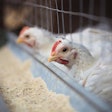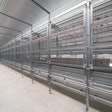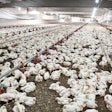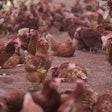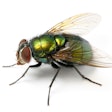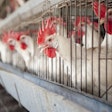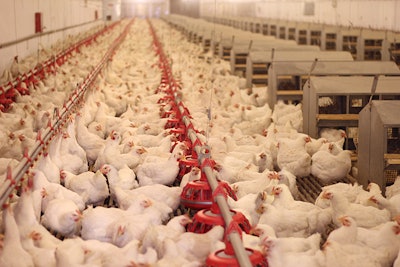
Mortality in cage-free egg-laying hens decreases over time as poultry operations gain experience and knowledge with the housing system, concluded research published in the journal Scientific Reports.
For years, experts have proposed that mortality is higher in cage-free production because the housing system puts hens in direct contact with manure and exposes them to pecking behavior, smothering and injuries due to collisions with perches.
However, this study refutes that idea, the authors said.
“The research shows that, given time and management experience, producers of higher welfare systems do not experience lower survival rates in their flocks,” study author Dr. Cynthia Schuck-Paim, Director at Welfare Metrics Project, said.
“As with any newly adopted practice, an initial period of learning and adaptation was necessary but, as this study clearly demonstrates, mortality is now similar between cage and cage-free aviaries, with trends showing that it might decrease even further in cage-free housing if management continues to improve and genetics are optimized for cage-free production.”
About the study
The research analyzed commercial data on egg-laying hen mortality using information collected from 176 million hens that lived in a variety of caged and cage-free systems in 6,040 commercial flocks in 16 countries.
Specifically, the researchers compared the mortality rates of flocks housed in conventional cages, furnished cages and cage-free housing systems.
“The well-being of layers is important in itself – we should be able to provide a respectful existence to animals under our custody. For the industry, ensuring good animal welfare is also necessary for alignment with the increasingly prevalent demand from consumers for higher welfare standards. It’s an effective strategy for a global market reality,” Schuck-Paim said.
“Understanding that it pays off to be prepared, for example through the adoption of best practices, will make the industry able to cope better with the rapid changes in the demands of consumers regarding the ethical implications of their purchasing choices.”
Like what you just read? Sign up now for free to receive the Poultry Future Newsletter.







